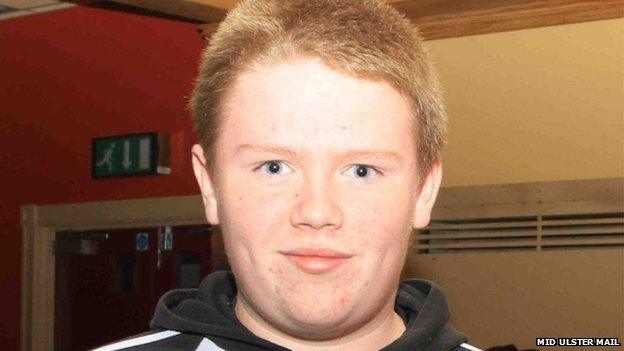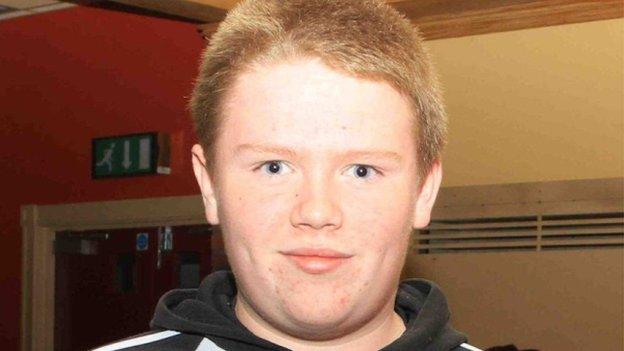Child sexting cases 'reported daily' in UK
- Published

Child protection officers are investigating an average of one case involving "sexting" every day, the UK's National Crime Agency (NCA) has said.
It said sending nude or explicit images of themselves on social media had become "normal" among teenagers.
But it was leaving them vulnerable to exploitation or blackmail, it added.
A campaign is being launched to give children and their parents advice if a child becomes involved in sexting.
The NCA's centre for tackling abuse, Ceop Command, said it received an average of one report a day of a child protection issue linked to sexting.
'Children devastated'
In some instances young people are targeted by strangers who attempt to blackmail them over images they have been tricked into taking.
Other cases involve private messages between friends being forwarded to others or a user posting a picture of themselves on a website or social media with low privacy settings.
The NCA campaign videos offer advice to parents and children
Zoe Hilton, head of safeguarding at Ceop Command, said: "Something that has started out as relatively innocent or normal for the young people involved has unfortunately turned into something that is quite nasty and needs intervention in order to safeguard and protect the child.
"The young person thinks they are sending it to someone they trust and actually that person turns out to be quite exploitative and not who they think they are."
Nabilla tells the BBC's Victoria Derbyshire that she found sending a semi-nude image "liberating"
A spokesman for the NSPCC said sexting was a "huge problem" and can leave children "devastated".
The Police Service of Northern Ireland is currently investigating the death of teenager Ronan Hughes, who apparently took his own life earlier this month.

Ronan Hughes is thought to have been tricked into posting pictures online
Superintendent Mike Baird said it was understood that the schoolboy from Co Tyrone "took his own life after he had been tricked into posting images on a social networking site".
The NCA campaign aims to help parents deal with the problem of sexting and minimise the risks.
Justine Roberts, chief executive of parenting website Mumsnet, said: "No parent wants their child to be exploited, hurt or bullied online, but some adults can feel a bit bewildered by the many different apps, sites and platforms, and by web-based scenarios that just didn't occur when they were growing up.
"More hard information for both kids and parents, such as that being provided by Ceop, is always welcome as families negotiate the possibilities and pitfalls of new tech."
- Published15 June 2015

- Published15 June 2015

- Published11 June 2015

- Published11 May 2015

- Published10 February 2015
